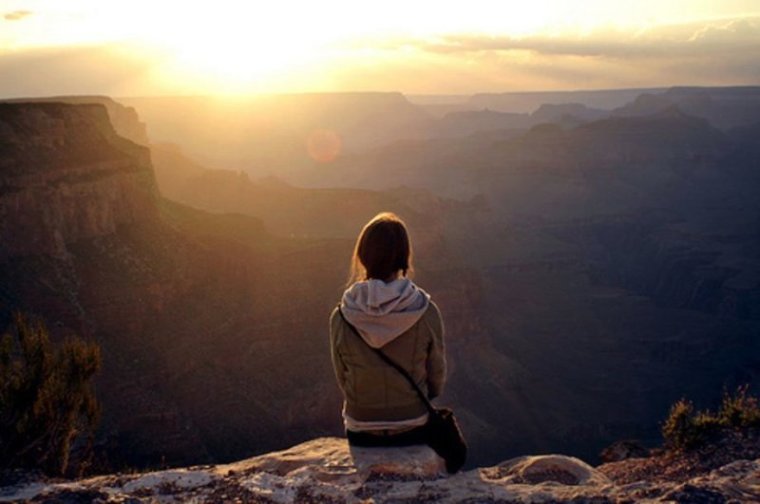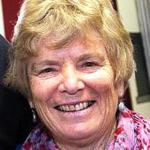
In pre-digital days I was helping out at a school camp for 11 year olds. One of the activities the class teacher asked the children to do, was to get away by themselves, where they couldn’t see or hear anyone else. During 20 minutes on their own they were to simply sit, and listen. Then they were to write down what sounds they heard.
The camp site was in the country, near some bush. The children came from a city school, and some of them just could not cope with being on their own and became distressed. Others were able to settle, but found it very strange trying to attune their ears to natural sounds. Others lapped up the whole experiment, especially the introverts.
On another occasion a friend burst into our living room, full of the experience of going on a silent retreat, and how much he had hated it. This retreat was part of his training for ministry, and as an extrovert, he simply could not handle not being able to talk at meals, or in passing anyone in the corridor.
Being able to sit and be still, and listen to the silence, is a natural part of being human.
To walk in the natural world, where we can simply ‘be’ is so important for our well-being, but increasingly human beings are being denied the opportunity to do that in crowded urban or city environments where there is constant background noise, the intrusion of busy devices, and nowhere to go to be on their own.
Conservationists are fighting for the preservation of areas of ‘natural quiet’ in wilderness areas, where there are no helicopter flights or aircraft landings, and no intrusion of drones. Often people who visit these places want to enjoy them without noise from the ‘outside world’ intruding on their experience. They may have deliberately left that world behind.
There are others for whom the natural environment is simply a playground for their adrenalin-inducing activities – and the accompanying noise. The battle is seen in the management plans being currently developed for some of NZ’s national parks.
While I write I am also watching the snow fall outside my window. Have you ever been outside in a snowfall in the country, and just listened? It is so, so quiet. The silently falling snow muffles the landscape; it’s as if the whole of the natural world is being covered over and sheltered. It’s breath-taking.
Such silence is not deathly; it is life-giving.
There is much focus today on mental health, and on developing resilience. There is justifiable concern about the effects of lockdown on people’s mental health and ability to cope. Is not one of the reasons people have difficulty with lockdown is because of a fear of being on their own, of not being used to their own company, of never having become comfortable with themselves, and of being over-stimulated by constant input from others? Maybe too that’s part of the reason why ‘fomo’ (fear of missing out) has become a form of angst.
As I revise this article, we have now been suddenly precipitated into another lockdown in New Zealand. How will people who are on their own cope this time? Learning to befriend themselves, enjoy their own company, and listen to the silence will surely help in some ways.
There is an accompanying illogical fear of being bored in our society.
Being on your own, for some people, means being bored. Some parents take it upon themselves to entertain or occupy their children with constant activities, especially if their child says to them, “I’m bored.” If one of my children made that comment, my likely response would be to ask, “What are you going to do about it?” As children growing up, my siblings and I were always expected to find things to do ourselves – which we did. Being creative is a necessary and natural activity for children; but children themselves need to have the opportunity to use their imaginations. Being bored is a good place to start!
When I lived with an aunt and uncle who had recently married, my aunt shared with me some of the highlights of their relationship as they got to know each other. She said, “I found that we could both be comfortable with each other, without having to talk. We could simply just be together.”
Giving children the chance to be on their own, without any devices; not allowing teenagers to have devices in their rooms at night; modelling a life that includes silence, engagement with the natural world, and genuine conversation – all these things help us develop as persons.
Fundamentally too, being able to be still, and listen, is a prior requisite to listening to God.
“Be still, and know that I am God,” is even more vital for us in today’s distracting, digitalised, noisy world. How can we develop a relationship with God otherwise?
It is over to us to do something about it. Some of us live in highly urbanised environments where there is no chance to be on our own. An Asian woman found the toilet was the only place she could be by herself (and busy mothers of pre-schoolers may find the same thing!) John and Charles Wesley and their many siblings learned that when their mother sat in her rocking chair and put her apron over her head, she was not to be disturbed.
We must want to be still, before we can learn to listen. Then who knows what we may hear! And we will find that ultimately we are not on our own anyway.

Liz Hay rejoices in living in a beautiful part of God’s creation in a high country mountain basin; and she also rejoices in hearing stories of God at work in people’s lives. One of her favourite activities is reading fascinating biographies that illustrate the wonderful ways God works uniquely with each person.